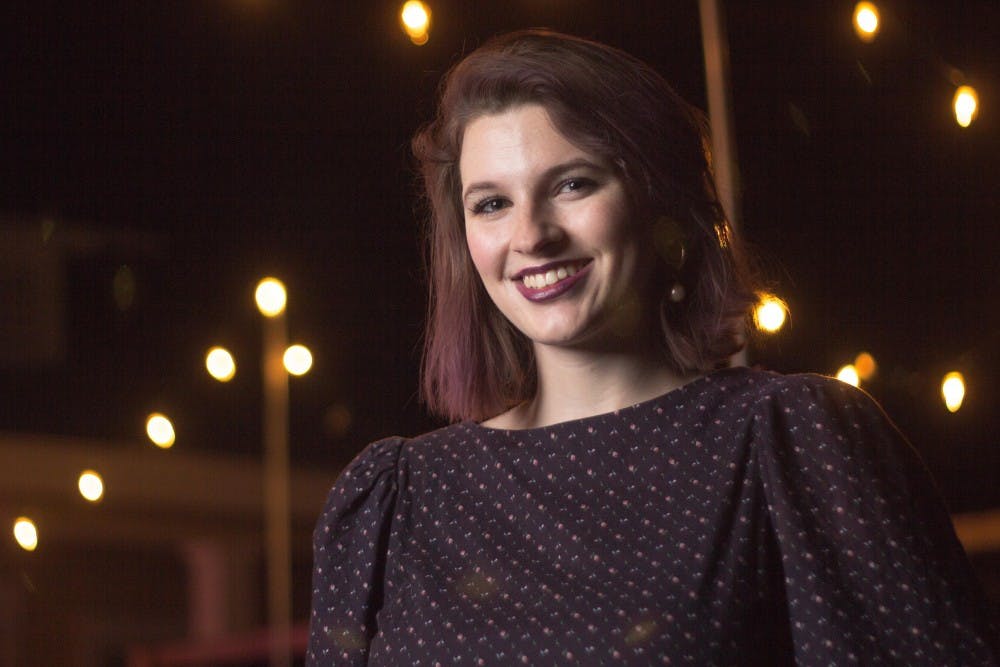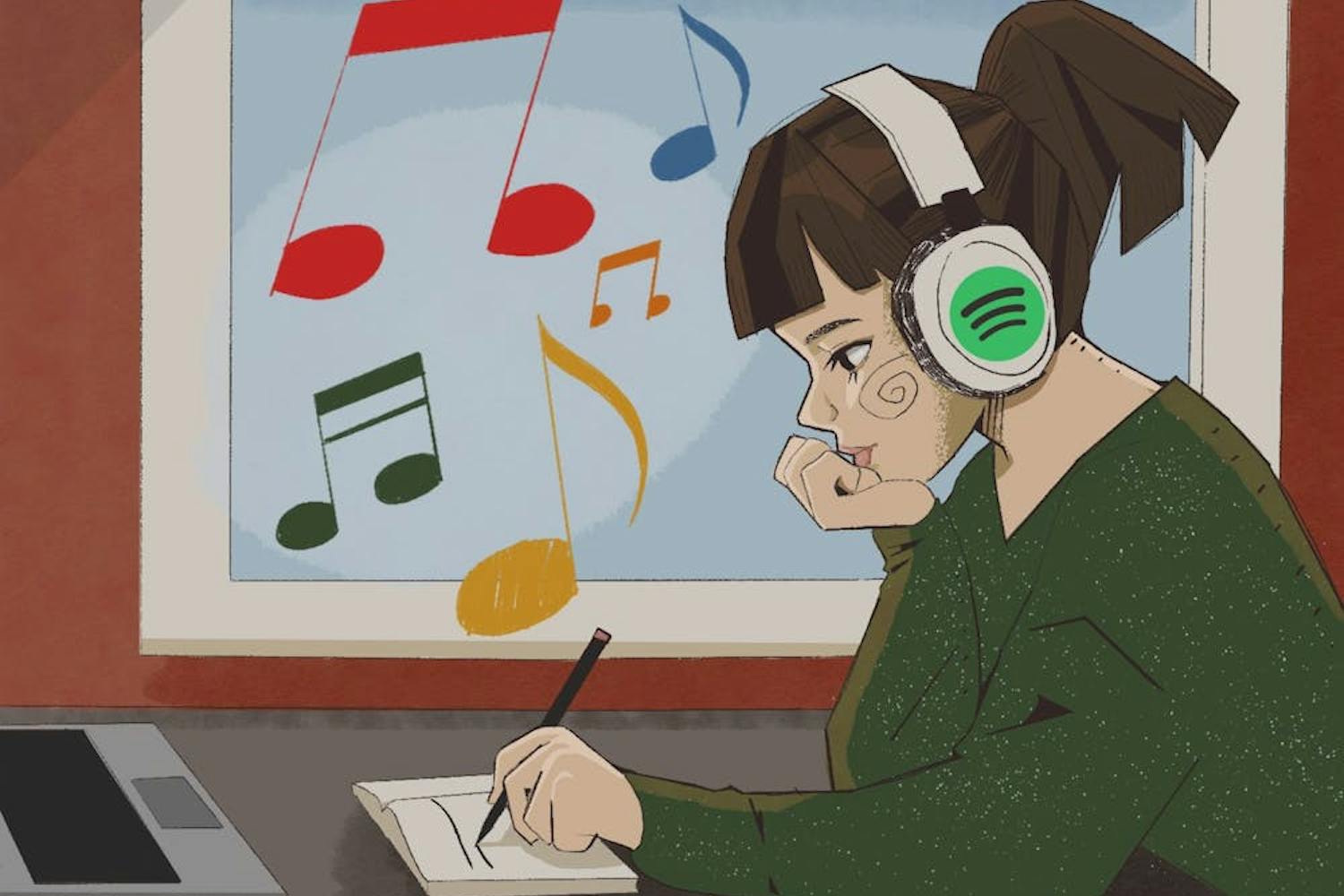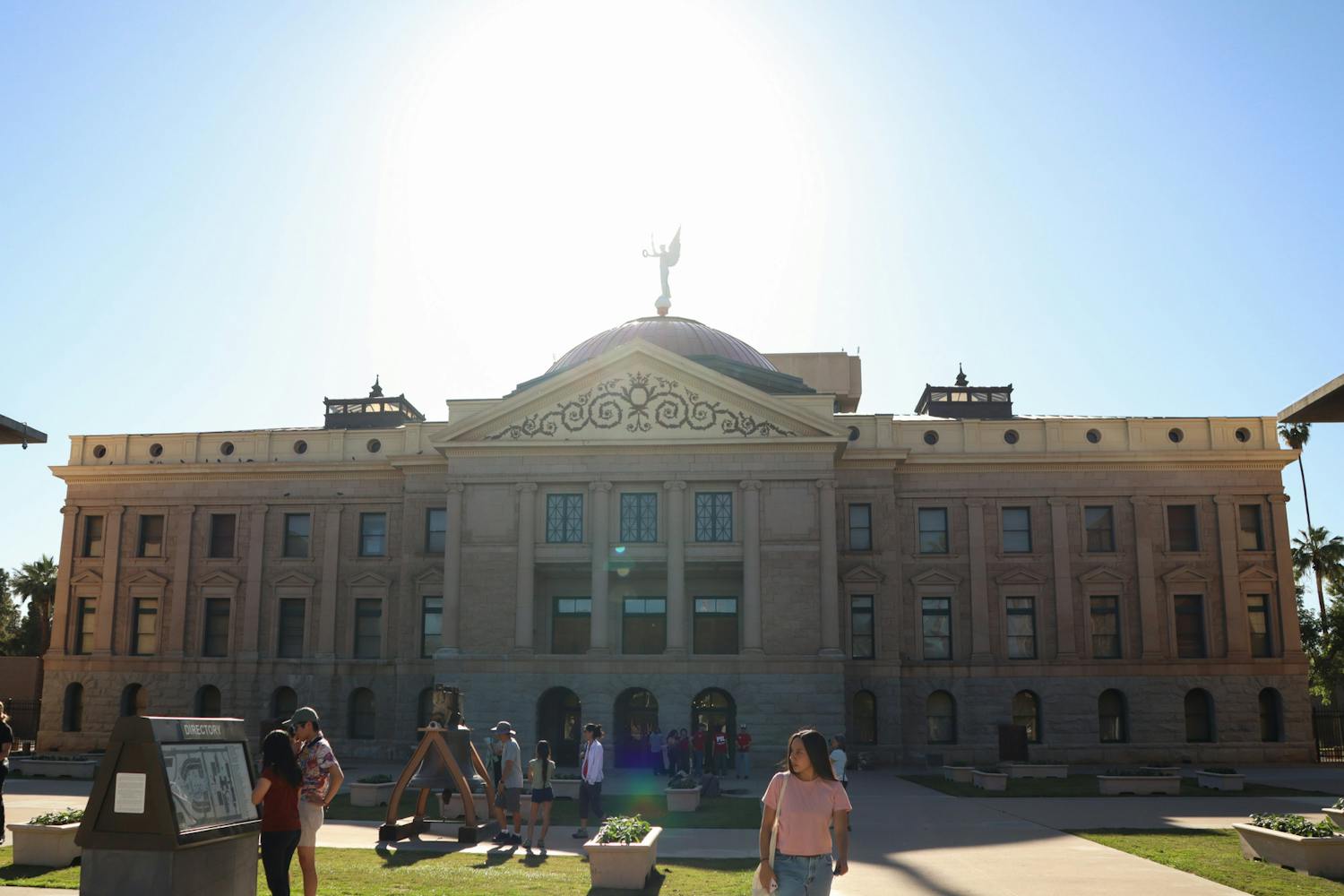 Journalism sophomore Hattie Hayes poses for a picture on Feb. 5, 2015 in Phoenix. Hayes studies journalism and film at ASU and is one of the performers for the Vagina Monologues 2015 premiering Feb. 14, 2015 at “The Pressroom” in Phoenix. (Jonathan Galan/ The State Press)
Journalism sophomore Hattie Hayes poses for a picture on Feb. 5, 2015 in Phoenix. Hayes studies journalism and film at ASU and is one of the performers for the Vagina Monologues 2015 premiering Feb. 14, 2015 at “The Pressroom” in Phoenix. (Jonathan Galan/ The State Press)Phoenix locals will perform and participate in Eve Ensler’s infamous play, "The Vagina Monologues," which shares comedic and heartfelt accounts of sexuality, on Feb. 14 to raise awareness against sexual violence.
This year’s cast consists of 26 women –– including 18 performers, six directors and two ASL interpreters. Co-producer Stacey Champion said working with women each year is a special event.
“The experience of working with all the women is always amazing,” she said. “It’s such a strong sisterhood, and I think there are a lot of women who are drawn to it who have dealt with some kind of physical or sexual abuse. …(Doing 'The Vagina Monologues') is a very healing and therapeutic feeling every year.”
Two ASU students will perform in the production. Hattie Hayes, a journalism sophomore, will read “My Vagina Was My Village.”
Hayes said the cast is made of everyday women, allowing for more than common theater enthusiasts to participate.
“It is not all theater people,” she said. “A lot of times, when you put on a production, it’s all actresses, but this is a bunch of different women, a couple students and … just people who want to do this.”
Women in the production are not expected to perform monologues that reflect their own experience, Hayes said.
“It’s more important to communicate the story truthfully than than it is to do a dramatic interpretation,” she said. “We want to make sure we read it as it’s written and make sure that people know it is not biographical about us, but about these women.”
Stories range from comedic quips about angry vaginas to accounts of rape and abuse. The production’s underlying message is that both realities exist, Hayes said.
“It has a lot to do with sexual empowerment, and it has a lot to do with sexual violence,” she said. “Those things can’t be separated. … I think it is important to make their dichotomy known without making them dependent on each other.”
The cast thus reclaims Feb. 14 as “V-day” instead of Valentine's Day to remind viewers of the injustices women face today, such as rape and domestic violence.
“It’s a good reminder that, no matter how a relationship looks on the outside, inside there can be suffering, there can be pain and there can be a lot of fear,” Hayes said. “Keeping that in mind on Valentine's Day is very poignant.”
Hayes said the production addresses a gamut of experiences with vaginas.
“There’s a lot of happiness and joy and ecstasy that comes out of a vagina, and there's a lot of hurt and sadness and true, soul-wrenching pain that comes out of a vagina … and we’re going to touch on all of those things,” she said.
Even though "The Vagina Monologues" premiered in 1996, co-producer Brooke Campbell said the stories are still important today.
“It’s a very important piece,” she said. “Even if you have a certain amount of controversy surrounding it, it’s still valid. We are not at a position where we exhausted it yet. … I love the fact that it is forward-thinking in that regard.”
Even after 19 years, the stories remain relatable, Campbell said.
“Come in with an open mind,” she said. “You may not relate to everything, but you’ll relate to something.”
Reach the reporter at aplante@asu.edu or follow @aimeenplante on Twitter.
Like The State Press on Facebook and follow @statepress on Twitter.




